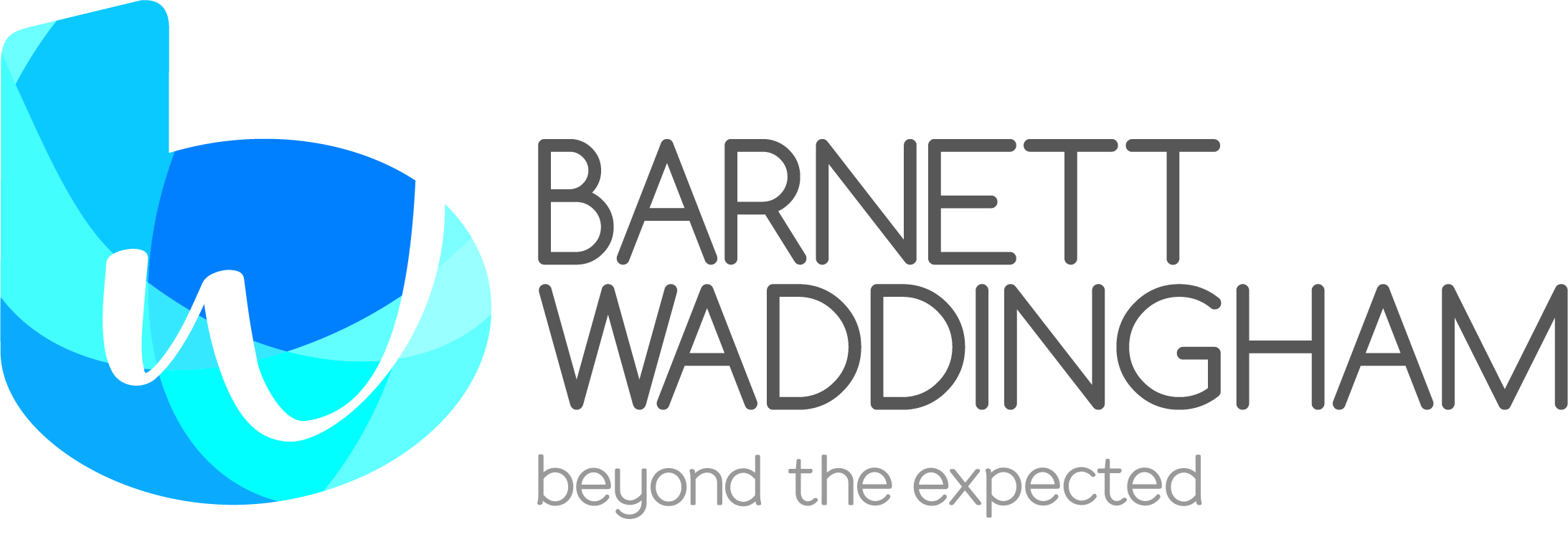We are delighted to announce the return of GIRO as an in-person and hybrid conference, giving you an opportunity to connect with actuaries in your practice area. This year’s conference is a double anniversary, as we’ll be marking 100 years since the first female actuary qualified in the UK and the conference’s 50th anniversary.
Join our leading experts to gain insight into key issues, emerging ideas, and new research across the general insurance sector, including:
Our full programme is set out below. The online conference is a selection of in-person sessions live-streamed online. Find out more at: GIRO Conference 2023: online programme.
Reserving for climate change: 2023 Working Party Update (PDF, 1.75 MB)
By the Climate Change Reserving Working Party
Marcus du Sautoy is Professor of Mathematics at the University of Oxford where he holds the prestigious Simonyi Chair for the Public Understanding of Science and is a Fellow of New College.
Du Sautoy has received a number of awards for his work including the London Mathematical Society’s Berwick Prize for outstanding mathematical research and the Royal Society of London’s Michael Faraday Prize for ‘excellence in communicating science’. He has been awarded an OBE for his services to science and was recently elected a Fellow of the Royal Society.
His mathematical research has covered a great many areas including group theory, number theory, and model theory, but he has been equally successful in his promotion of mathematics to the general public. He has published a number of best-selling, non-academic books and appears regularly on television and radio.
Dr Tara Shine is an expert in the field of climate change and climate justice, with a passion for communicating her science and her positive vision for the future.
She has advised world leaders, governments, and civil society organisations on climate change, environmental policy, and development assistance. Formerly a climate negotiator at the UN and Special Advisor to the Mary Robinson Foundation - Climate Justice and Adviser to the Elders, Tara is co-Founder and Director of the award-winning sustainability business, Change by Degrees.
Tara is Chair of the Board of Trustees of the International Institute for Environment and Development (IIED) and co-facilitator of a science-policy dialogue under the UN Climate Convention. Tara’s book ‘How To Save Your Planet One Object At A Time’ was published by Simon and Schuster in April 2020, and is a guide to sustainable living told through everyday objects.
Tara enjoys getting out into the wild to explore environmental issues first-hand. At home in any location from the deserts of Mauritania to the rainforests of Borneo, Tara enjoys meeting people to hear their stories and experiences and to champion the solutions they need. Most recently she travelled to Antarctica with 90 women scientists as part of Homeward Bound, a global leadership programme for women in science which aims to find better ways to care for our global home. Tara is part of the visibility and science communications faculty for Homeward Bound.
Dr Timothy Less leads on geopolitical risk analysis at the Centre for Geopolitics at the University of Cambridge. He also works as a private consultant to the corporate and public sectors. Previously, he served as a diplomat and policymaker at the Foreign and Commonwealth Office and as a country risk analyst in the City. He holds an MSt in International Relations and a PhD in modern history from the University of Cambridge.
| Activity | Time | Details |
|---|---|---|
| Registration | 12:45 - 14:00 | |
| Transfer time | 14:00 - 14:10 | |
| Welcome to the GIRO Conference | 14:10 - 14:20 | |
| Research update | 14:20 - 14:50 | |
| Plenary 1 | 14:55 - 15:55 | Dr Tara Shine, Chair of the International Institute of Environment and Development and Director of Change by Degrees |
| Transfer time | 15:55 - 16:05 | |
| Workshop A1 | 16:05 - 16:55 | PRA update Read more |
The Prudential Regulation Authority (PRA), part of the Bank of England, will provide an update on its key regulatory focuses and points of engagement with the general insurance industry. Daniel Curtis, Rachel Evans, Tom Perkins, Danny Rohrbasser, and Chris Wiltshire, Bank of England | ||
| Workshop A2 | 16:05 - 16:55 | Current issues in capital modelling Read more |
This session is a follow-up to the speakers’ session from the 2022 General Insurance Spring Conference. Here they will cover some of the recent discussion points and conclusions, covering topics such as:
Ajay Chhabra, James Toller, and Girinker Aggarwal, Members of the Capital Research Group | ||
| Workshop A3 | 16:05 - 16:55 | Building open-access tools for catastrophe modelling and parametric insurance Read more |
In this session, James McIlwaine uses his experience as the lead actuarial developer of the Insurance Development Forum (IDF)/Oasis Risk Explorer to explore how open-access data and spatial sampling can be used to build simple catastrophe models. He will also look at how free-to-use tools can be used to close the protection gap in low and middle-income countries. He will cover the basic components of catastrophe models and how they’re set up, before introducing what parametric insurance is and why it’s useful. Additionally, he will provide a live demo of the tool and a few of its uses. The Risk Explorer is a free, online, open-source risk modelling platform designed to educate non-expert users in the basic components of catastrophe modelling and parametric insurance. The tool is able to model worldwide tropical cyclone risk as well as a number of other perils. James McIlwaine, Maximum Information | ||
| Workshop A4 | 16:05 - 16:55 | To price flood risk-reflective or not? A key question facing the insurance industry and government Read more |
UK flood insurance is currently based on risk-reflective pricing mechanisms, with highest risk homes subsidised through Flood Re. The current Flood Re solution provides affordable residential flood cover, supported by levies on home insurers. Flood Re ceases operating in 2039, after which all homes currently subsidised are likely to revert to risk-reflective pricing, becoming unaffordable for many. While risk-reflective pricing and the current Flood Re solution both have their drawbacks, there are other options. This session examines strengths and weaknesses of 2 insurance pricing extremes – fixed tariff and fully risk-reflective – along with the current Flood Re solution. It also considers how flood insurance pricing operates in different markets around the world, including issues such as the:
Richard Stock, Hymans Robertson, Laura Evans, Flood Re, and Marcus Schofield, Marcuson Consulting | ||
| Workshop A5 | 16:05 - 16:55 | Forewarned is forearmed: lessons learned and emerging risks in the FinPro market Read more |
After a period of rate hardening, the London professional and financial lines market has seen a significant deceleration in rate gains, raising the prospect of a soft market in economically uncertain times. This could result in volatility that actuaries will need to quantify and manage. This presentation will examine the extent to which risks that emerged in the soft market of the previous 15 to 20 years are relevant today and how they can be managed. For example, claims flowing from the 2007 to 2008 financial crisis and subsequent changes in financial regulation, social inflation, the Grenfell Tower fire, Lloyd’s renewed focus on profitability, and the broader impacts and uncertainties of COVID-19. The presenters will draw on their collective experience of the London FinPro market, which spans over 10 years and previous research on topics such as class actions and climate litigation. They will supplement this with analysis of Lloyd’s data from Xchanging. The presentation will also consider emerging risks and how these might be tackled and will draw on additional insights on the US market gleaned from Milliman’s US actuaries. The presentation will assume some familiarity with Professional and Financial Lines classes of business. It should be of interest to actuaries at all levels and will be relevant to a number of practice areas. Anandi Shah and Joshua Tomlin, Milliman LLP | ||
| Workshop A6 | 16:05 - 16:55 | Analytics leadership in a chaotic world Read more |
The insurance world is growingly chaotic and we never seem to have the time or resources to keep up with it, less make the improvements we know we need. So how can we get out of this mess? The Sensing and Responding to Chaos and Nonsense Working Party has found ideas from the industrial sector and mathematical chaos theory that explain how to track change and continually improve processes so that work works well and collaboration comes cleanly. The key is understanding how mathematical chaos works and setting up appropriate chaos monitoring. Plus enabling a special kind of self-organising leadership when hard chaos hits. In this session the speakers will present a cybernetics model for chaotic change that is a perfect fit for the working party’s 6-year research journey. Ideas will be illustrated through a mixture of principles, examples, and audience participation. Chris Smerald, Emerald Lake Consulting and Ian Thomas, Aurora Insurance | ||
| Workshop A7 | 16:05 - 16:55 | Retrospective reinsurance: why the explosion of deals and press coverage? Are you missing out? Read more |
Market participants would have noticed the significant press coverage of large retrospective (legacy) transactions over the last few years. Transactions are increasingly large (in the billions of reserves), diverse portfolios and viewed within a capital management framework rather than a disposal of non-core liabilities. The capital landscape, economic environment, and insurance market cycle has caused the perfect storm for legacy deals. This talk will cover the macro view of this segment of the market and give a deep dive into a typical transaction. Mike Cane, Gallagher Re | ||
| Transfer time | 16:55 - 17:05 | |
| Workshop B1 | 17:05 - 17:55 | Why isn’t machine learning more transparent in personal lines pricing? Read more |
There is widespread interest in machine learning (ML) and widespread interest and concern in transparency of these techniques and fairness to customers. How can we address these concerns while maximising the value and opportunity of these approaches? This session will address key questions such as:
This session will include a presentation on new techniques and enhancements and practical guidance on how they can be implemented as part of streamlined pricing processes. This will be a high-level session rather than a technical one. It should be of interest to actuaries at all levels with an interest in ML including senior actuaries and team leaders interested in maximising use of ML in pricing and analytics. Neil Chapman and Rachael McNaughton, WTW | ||
| Workshop B2 | 17:05 - 17:55 | Lloyd’s update Read more |
An overview from Lloyd’s on current hot topics relevant to the Lloyd’s market. Mirjam Spies, Catriona Geraghty, Rebecca Soraghan, and Taraash Gautam, Lloyd’s of London | ||
| Workshop B3 | 17:05 - 17:55 | Insurance for humanitarian crises Read more |
Disaster risk financing (DRF) is a small but rapidly growing space where parametric insurance products are used to provide protection for people in the developing world. Within this arena, START Ready is a new and unique financing mechanism that uses advanced planning so that funding can be rapidly released when needed most. START Ready is now in its second year of operation, and after much hard work has secured (re)insurance to make more efficient use of the funds available. DRF has the potential to revolutionise the way we respond to humanitarian crises, but it has many challenges. In this session, the speakers will reflect on the experiences of 2 actuaries supporting START Ready on their journey: one sitting on the governance committee and another supporting START on procuring insurance. The session will:
Andrew Jinks, Government Actuary's Department and Rachel Haldane, Start Network | ||
| Workshop B4 | 17:05 - 17:55 | Case study: measuring your biodiversity footprint Read more |
Measuring and understanding the non-financial capital elements of your ESG strategy can be challenging. With the Taskforce on Nature-related Financial Disclosures requirements now in full swing and the increased evidence that climate change and biodiversity go hand in hand, it is more important than ever to start understanding and measuring your company’s biodiversity footprint. In this talk, the speakers we will go through a case study to illustrate how this can be achieved in practice. Their talk will demonstrate the versatility of the actuarial skillset in the context of a new and evolving cross-functional field. Raluca Stefan, Grant Thornton; Hamda Masoud, Grant Thornton and Shana Vida Gavron, Endangered Wildlife OU | ||
| Workshop B5 | 17:05 - 17:55 | Retrospective solutions: a strategic planning and management tool Read more |
Davin and Shan are looking to provide an overview of the legacy market and how this has changed over the last few years. In particular they are hoping to raise awareness of how the legacy market can be used as an effective marketplace by senior management and C-suite executives in managing their capital and balance sheets to support their underwriting strategy. Davin and Shan have extensive experience in the area, having collectively accumulated over 10 years working within retrospective reinsurance. Davin Patel, Compre Group and Shan Hirani, Gallagher Re | ||
| Workshop B6 | 17:05 - 17:55 | Risk revolution: empowering the chief risk officer of the future Read more |
In the fast-evolving landscape of the insurance industry, risk management plays a critical role in safeguarding the stability and success of companies. Traditionally, the risk function has been perceived as conservative and cautious, often seen as a potential barrier to innovation and growth. But this perception is changing as forward-thinking chief risk officers (CROs) recognise the value of aligning risk management with the broader strategic objectives of their organisations. This session will explore the transformation of the risk function by delving into the ways in which CROs can proactively support and contribute to the overall company strategy, fostering a culture of risk-aware entrepreneurship rather than risk aversion. The speakers will highlight successful case studies and best practices from leading insurance companies that have effectively integrated the risk function into their strategic decision-making processes by strengthening the collaboration between risk management and other key functions such as underwriting, marketing, and operations. Furthermore, the discussion will address the importance of effective communication and transparency in risk reporting to stakeholders. It will also raise awareness of the breadth of expertise and knowledge required by the CRO to meet expectations from the regulators and senior management. Julien Masselot and Iain Maclugash, Barnett Waddingham | ||
| Workshop B7 | 17:05 - 17:55 | How can actuaries best add value to claims? Read more |
Claims and actuarial are 2 teams that often end up working together but finding a middle ground between the 2 perspectives can be a challenge. The speakers will unpack the role of working within claims as a claims actuary, answering:
The speakers will also share their research into using analytics to better understand claims experience, including:
Charlie Stone and Melissa Tam, LCP | ||
| Drinks reception and buffet dinner | 17:55 - 21:00 | |
| End of first day of conference | 21:00 - 21:00 | |
| Activity | Time | Details |
|---|---|---|
| Registration | 08:15 - 09:00 | |
| Plenary 2 | 09:00 - 10:00 | Professionalism Read more |
This talk will explore actuarial professionalism and the impacts of the code, using real life implications to provoke discussion. There will also be an update from the IFoA on professional issues. Richard Chalk and Sonal Shah | ||
| Morning refreshment and exhibition | 10:00 - 10:30 | |
| Transfer time | 10:30 - 10:45 | |
| Workshop C1 | 10:45 - 11:35 | Third Party Working Party annual update Read more |
The annual update by the Third Party Working Party. This shows trends in frequency and severity of claims for all claim types (AD, TPD, TPI) and tries to put them into context of the wider environment. Jacqui Draper, GAD and Robert Treen, WTW | ||
| Workshop C2 – Kindly sponsored by Hyperexponential | 10:45 - 11:35 | The state of pricing: what’s going on in the London Market? Read more |
By combining insights from a recent extensive industry wide survey of actuaries and underwriters, alongside benchmarking work with numerous insurers on pricing capabilities, Amrit, Tom, and Jamie will be using this session to discuss the current and evolving state of pricing within the London Market. Key themes being covered within this session will include:
The session will conclude with an interactive Q&A with the speakers where you can dig into more detail on pricing areas brought up through the talk. Tom Chamberlain, Amrti Santhirasenan and Jamie Wilson, Hyperexponential | ||
| Workshop C3 | 10:45 - 11:35 | Zero to hero: can we build a capital model in an open-source framework, from scratch, using ChatGPT? Read more |
Using open-source software to build a capital model is a problem that has not been widely tackled across the industry. The majority of capital models are built in proprietary software and can be relatively ‘black box’ in their nature. This engaging session will:
Oliver Grossman and Isabelle Williams, LCP | ||
| Workshop C4 | 10:45 - 11:35 | Reserving for climate change: current developments Read more |
In its ‘boiling the ocean?’ workshop at GIRO Conference 2022, the Climate Change Reserving Working Party explored how climate change would impact the work of reserving actuaries. The working party surveyed current attitudes and approaches and unpacked key questions for reserving actuaries. The changes to come will be far-reaching, complex, and increasing over time, reflecting the changing physical environment, society’s transition to a low-carbon global economy, and developments in climate litigation. The working party will share output from its 3 main workstreams, which are:
The profile and urgency of the challenge for reserving actuaries has increased since last year, with continuing wildfires, record-breaking heatwaves, fast-moving developments in climate litigation, and the high-profile withdrawal of reinsurance capacity in major peril-regions. Also, the new TAS 100 includes an explicit reference to climate change. This workshop is aimed at general insurance reserving practitioners and will not assume an in-depth knowledge of climate change. James Orr, PRA - Bank of England; Alex Marcuson, Marcuson Consulting and Josie Durley, Nephila | ||
| Workshop C5 | 10:45 - 11:35 | Ethical decision making Read more |
An introduction to some different ethical frameworks, using case studies and discussion, to think about why it can happen that 2 people can come up with contradictory solutions to a problem while both (correctly) claiming they are acting ethically. This will then be applied to various work situations. Richard Winter | ||
| Workshop C6 | 10:45 - 11:35 | Managing inflation uncertainty Read more |
The speakers will summarise the outcome of their second annual inflation survey of UK P&C actuaries, comparing actual versus expected CPI inflation for 2023, highlighting key changes since last year’s survey in relation to participants’ views of inflation expectations and uncertainty in the short and medium term. They will also present the first part of their research: namely techniques for estimation of historical claims’ inflation. Cian Creedon, MS Amlin; Erin Bargate, Hiscox; Shane Lenney, SCOR; Marcus Schofield, Marcuson Consulting | ||
| Workshop C7 | 10:45 - 11:35 | Building systems that last Read more |
Actuaries are using more software than ever before and with the rise of InsurTech, the role of an actuary is expanding to include more development work. This talk will go through history, principles, and guidance on how actuaries should best approach building systems to last, instead of ones that turn into a future burden. Thomas Hamilton, L Data. T Data | ||
| Transfer time | 11:35 - 11:45 | |
| Plenary 3 | 11:45 - 12:45 | What if? 10 geopolitical risks to keep you awake at night Read more |
The presentation will identify the 10 most serious geopolitical risks facing the world right now and the consequences should any of them come to pass. Dr Timothy Less, Centre for Geopolitics at the University of Cambridge | ||
| Hot topic 60 second pitches | 12:45 - 12:55 | |
| Lunch | 12:55 - 13:55 | |
| Transfer time | 13:55 - 14:10 | |
| Hot topics: session 1 | 14:10 - 14:50 | Session repeated at 15:05, giving delegates the chance to attend more than one hot topic. |
| Hot topic 1 | 14:10 - 14:50 | Actuarial data science: innovative approaches and best practices Read more |
The IFoA Actuarial Data Science Working Party would like to share its findings on new approaches to modelling in non-life insurance. It aims to help update your technical toolkit by showcasing new predictive models developed by actuaries, inspired by machine learning techniques, and dispel myths about the lack of model explainability. The goal of this presentation is to perform a series of modelling exercises with a data science perspective, including the step of model interpretability using eXplainable AI (XAI) methods. By comparing the new and standard models, the speakers will assess the value proposition of machine learning for actuaries and address the benefits and challenges associated with adopting these new techniques. The session will cover various tree-based models and different neural network architectures. The content of the talk is targeted towards pricing and reserving actuaries, predictive modellers, actuarial data scientists, and those seeking to gain more knowledge about this field. Karol Gawlowski, Allianz Commercial | ||
| Hot topic 2 | 14:10 - 14:50 | Managing AI risks in insurance Read more |
This presentation will outline some of the key risks and opportunities for insurers arising from the rapid development of AI technology. It covers both the changes in insurance risk as well as the operational risk associated with adoption of AI technology by insurers. The format will be a presentation with some live audience polling on key issues. The speakers intend to cover:
The presentation will be accessible to all with general insurance knowledge and an interest in emerging risks and AI. It is aimed at providing a general overview of a fast-evolving area of focus. Edward Harrison, LCP and Visesh Gosrani, Cowbell Cyber | ||
| Hot topic 3 | 14:10 - 14:50 | Approaches to using AI and ML in actuarial work Read more |
GAD is currently carrying out research for the FRC into the use of machine learning and artificial intelligence in actuarial work. This research will be completed ahead of the GIRO Conference 2023 and this session is intended to talk through the key findings, particularly in respect of general insurance actuarial work. The speakers will provide the perspective of both the research team at GAD and the FRC as commissioners. They will also cover the implications of the findings and relevant developments since the research was completed. Actuaries working with AI or ML as practitioners, sponsors, or users of output should find this relevant and interesting. Attendees should get an understanding of the research findings on how AI and ML is being used by actuaries, including:
Sam Davies, GAD and Matthew Myring-McCullagh, Financial Reporting Council | ||
| Hot topic 4 | 14:10 - 14:50 | Generative AI: is the world about to be turned on its head? Read more |
This session will delve into the realm of AI and its impact on the insurance market. We begin by demystifying the differences between machine learning, AI, and generative AI, providing attendees with a clear understanding of these terms and their applications. Our speakers will then cover in further detail:
Through the session the speakers will explore how this transformative technology can be leveraged in attendees’ own organisations, including practical examples of how AI can streamline processes, improve decision-making, enhance risk analysis, and drive innovation within the insurance industry. The session will conclude with an engaging Q&A session where the attendees will have a chance to get involved in the discussion. Tom Chamberlain and Amrit Santhirasenan, Hyperexponential | ||
| Hot topic 5 | 14:10 - 14:50 | Will actuarial input be replaced by artificial intelligence? Read more |
In this presentation the speakers provide a short introduction to large language models followed by 6 case studies of their use in different elements of actuarial work and insurance. They will conclude with a discussion of the risks and evolving regulatory landscape for large language models and AI. The presentation includes demonstrations of large language models for coding, automation and transcription of excel models into code, generation of documentation, and topic modelling. The speakers have presented this topic at CILA and the general insurance conference of the Society of Actuaries, Ireland. The content is suitable for all audiences including:
Matthew Edwards, Mani Heer and Chris Halliday, WTW | ||
| Hot topic 6 | 14:10 - 14:50 | Artificial intelligence: a rose by any other name? Read more |
Depending on who you listen to, AI is either going to destroy the world or solve all the world’s problems. Either way, it will revolutionise everything, right? But what if it doesn’t? What if it’s not good, or bad. What if it’s just… fine? AI joins the long list of innovations, driven by advances in technology and economies of scale, whose names hide the underlying premise. This presentation will explore what AI could be called and how, if you frame it in the right way, you can see it for what it is: a tool for people. Fearghas MacGregor, Barnett Waddingham | ||
| Transfer time | 14:50 - 15:05 | |
| Hot topics: session 2 | 15:05 - 15:45 | Repeat of session 1, giving delegates the chance to attend more than one hot topic. |
| Hot topic 1 | 15:05 - 15:45 | Actuarial data science: innovative approaches and best practices Read more |
The IFoA Actuarial Data Science Working Party would like to share its findings on new approaches to modelling in non-life insurance. It aims to help update your technical toolkit by showcasing new predictive models developed by actuaries, inspired by machine learning techniques, and dispel myths about the lack of model explainability. The goal of this presentation is to perform a series of modelling exercises with a data science perspective, including the step of model interpretability using eXplainable AI (XAI) methods. By comparing the new and standard models, the speakers will assess the value proposition of machine learning for actuaries and address the benefits and challenges associated with adopting these new techniques. The session will cover various tree-based models and different neural network architectures. The content of the talk is targeted towards pricing and reserving actuaries, predictive modellers, actuarial data scientists, and those seeking to gain more knowledge about this field. Karol Gawlowski, Allianz Commercial | ||
| Hot topic 2 | 15:05 - 15:45 | Managing AI risks in insurance Read more |
This presentation will outline some of the key risks and opportunities for insurers arising from the rapid development of AI technology. It covers both the changes in insurance risk as well as the operational risk associated with adoption of AI technology by insurers. The format will be a presentation with some live audience polling on key issues. The speakers intend to cover:
The presentation will be accessible to all with general insurance knowledge and an interest in emerging risks and AI. It is aimed at providing a general overview of a fast-evolving area of focus. Edward Harrison, LCP and Visesh Gosrani, Cowbell Cyber | ||
| Hot topic 3 | 15:05 - 15:45 | Approaches to using AI and ML in actuarial work Read more |
GAD is currently carrying out research for the FRC into the use of machine learning and artificial intelligence in actuarial work. This research will be completed ahead of the GIRO Conference 2023 and this session is intended to talk through the key findings, particularly in respect of general insurance actuarial work. The speakers will provide the perspective of both the research team at GAD and the FRC as commissioners. They will also cover the implications of the findings and relevant developments since the research was completed. Actuaries working with AI or ML as practitioners, sponsors, or users of output should find this relevant and interesting. Attendees should get an understanding of the research findings on how AI and ML is being used by actuaries, including:
Sam Davies, GAD and Matthew Myring-McCullagh, Financial Reporting Council | ||
| Hot topic 4 | 15:05 - 15:45 | Generative AI: is the world about to be turned on its head? Read more |
This session will delve into the realm of AI and its impact on the insurance market. We begin by demystifying the differences between machine learning, AI, and generative AI, providing attendees with a clear understanding of these terms and their applications. Our speakers will then cover in further detail:
Through the session the speakers will explore how this transformative technology can be leveraged in attendees’ own organisations, including practical examples of how AI can streamline processes, improve decision-making, enhance risk analysis, and drive innovation within the insurance industry. The session will conclude with an engaging Q&A session where the attendees will have a chance to get involved in the discussion. Tom Chamberlain, Amrit Santhirasenan, and Jamie Wilson, Hyperexponential; Alice Boreman, EY | ||
| Hot topic 5 | 15:05 - 15:45 | Will actuarial input be replaced by artificial intelligence? Read more |
In this presentation the speakers provide a short introduction to large language models followed by 6 case studies of their use in different elements of actuarial work and insurance. They will conclude with a discussion of the risks and evolving regulatory landscape for large language models and AI. The presentation includes demonstrations of large language models for coding, automation and transcription of excel models into code, generation of documentation, and topic modelling. The speakers have presented this topic at CILA and the general insurance conference of the Society of Actuaries, Ireland. The content is suitable for all audiences including:
Matthew Edwards, Mani Heer and Chris Halliday, WTW | ||
| Hot topic 6 | 15:05 - 15:45 | Artificial intelligence: a rose by any other name? Read more |
Depending on who you listen to, AI is either going to destroy the world or solve all the world’s problems. Either way, it will revolutionise everything, right? But what if it doesn’t? What if it’s not good, or bad. What if it’s just… fine? AI joins the long list of innovations, driven by advances in technology and economies of scale, whose names hide the underlying premise. This presentation will explore what AI could be called and how, if you frame it in the right way, you can see it for what it is: a tool for people. Fearghas MacGregor, Barnett Waddingham | ||
| Afternoon refreshments and exhibition | 15:45 - 16:15 | |
| Transfer time | 16:15 - 16:30 | |
| Workshop D1 | 16:30 - 17:20 | Solvency II Practical Review Working Party Read more |
Solvency II was implemented at the start of 2016 following 15 years of thorough consultation. However, practical issues with its application came to light. In addition to this, the Treasury Select Committee carried out an inquiry on the possible modifications to Solvency II post Brexit. The working party’s initial scope focused on carrying out a practical review of the Solvency II regime to help guide these modifications. On 17 November 2022, the government announced its final proposals and the reformed Solvency II regime will be known as ‘Solvency UK’. The renewed working party scope was to gain a clarity on the changes and possible market impact of moving from Solvency II to ‘Solvency UK’ on the non-life sector. This talk will present the working party’s findings and additional points to consider in transitioning to Solvency UK Amrita Pattni, Guy Carpenter | ||
| Workshop D2 | 16:30 - 17:20 | PPO Working Party Read more |
The new Ogden discount rate is imminent. Large claims inflation is still hotly debated, and large loss now represents around 25% of claims cost for UK motor insurers – in reality, the most volatile 25% of claims cost. The PPO Working Party will host a presentation and discussion of these topics, including:
Justin Thomas, Acorn Insurance | ||
| Workshop D3 | 16:30 - 17:20 | Two worlds colliding: the role of pricing actuaries among data scientists: industry perspective Read more |
As expert modellers, pricing actuaries over the last few years have been keen to upskill in various coding languages and study alternative modelling algorithms for predicting claims experience, especially in personal lines insurance. This is all well and good in an analytical, research, and development environment. But what if you want to implement all this knowledge into live pricing? The speakers in this session will showcase how actuaries and data scientists can collaborate to produce market leading pricing algorithms. They will celebrate diversity in pricing teams, leveraging their own experiences (from actuaries in the business and data scientists), elements of research around data-driven culture, and parts of the Actuaries’ Code. Topics discussed will range from the tech stack to team structure and everything else in-between. Kristina Hegarty, Tom Beckett, Paul Shannon, Hastings Direct | ||
| Workshop D4 | 16:30 - 17:20 | Emerging risk: a geopolitical perspective Read more |
Effective enterprise risk management should ensure ongoing review and improvements to existing risk frameworks by creating an emerging risk sub-framework to account for emerging risk identification and to identify, assess, quantify, represent, and communicate these types of risks and their associated uncertainties so that firms can minimise the strategic shocks associated with emergencies that arise from these types of risks. This webinar provides key insights into key global geopolitical issues and explores how risk functions can contribute to more effective decision-making in their firms on this key issue. Lawrence Habahbeh, HedgeGenomics | ||
| Workshop D5 | 16:30 - 17:20 | Climate change: what you really think Read more |
Every year Hymans Robertson invites a wide selection of insurers to complete its in-depth survey about climate change. The areas covered include:
This year Hymans Robertson would like to share what it knows about the market with you. In this session the speakers will discuss the above climate change considerations and look to provide solutions to these considerations. They will also look at what you think about biodiversity, another key developing area, and your plans on reporting in line with Taskforce on Nature-related Financial Disclosures guidance, which is to be published in September 2023. This will be a high-level interactive live session rather than a technical one. It should be of interest to actuaries of all levels with an interest in better communication including senior actuaries and team leaders who communicate with boards regularly. Natanya Taylor, Siddhant Chopra, and Kate Fry, Hymans Robertson | ||
| Workshop D6 | 16:30 - 17:20 | Can risk management ever be agile? Read more |
A beginners guide to risk management across an agile transformation from someone who should know better! There once was a chief actuary of a Lloyd’s syndicate who spent her career in waterfall transformation. Then she decided to adopt the risk function of a personal lines insurer amidst an enterprise wide agile transformation. Will she succeed? Will the programme ever finish? How will she manage risk with no plans? How do you secure outcomes with a moving scope? How can you impose order and discipline without governance and meetings? This session is designed for people considering or delivering change in an ‘agile’ environment. After 18 months of working on an agile change programme replacing policy, underwriting, claims, and data systems, Helen Cooper will explore what she has learned and how the approach differed to a traditional waterfall mindset. Helen Cooper, esure | ||
| Workshop D7 | 16:30 - 17:20 | Capital clusters: using machine learning to demystify the 1in200 Read more |
This talk aims to introduce capital modellers to simple machine learning techniques to aid their understanding of their outputs at the 1in200. Many modellers will be familiar with these techniques already but may not have seen them applied in this way before. This talk assumes only very basic knowledge of capital modelling and no prior knowledge of machine learning. Howard Dale and Patrick Shammas, Dale Consulting | ||
| Transfer time | 17:20 - 17:30 | |
| Workshop E1 | 17:30 - 18:20 | A perfect storm: what we can learn from recent motor losses Read more |
This talk will cover the drivers for the 2022 losses including factors affecting claim cost and pricing, many of which were outside the insurers control. It will examine the challenges faced by the insurers from all angles including regulation, inflation, and the impact Covid had on experience and insurance strategy. The speakers will look at how those different factors combined to make it very difficult to keep on top of the profitability and predict future outcomes. It will cover the ongoing challenges and most importantly what we, as actuaries, should do differently based on what we’ve learned. This will be a good talk for anyone in or new to motor insurance as it will touch on the key challenges facing motor insurance all together in one talk, including issues discussed separately in detail in other talks, such as Ogden and the Third Party Working Party. Susan Dreksler and Janet Baker, KPMG | ||
| Workshop E2 | 17:30 - 18:20 | ESG: social considerations Read more |
This roundtable aims to have an open discussion with attendees around:
Laura Curtis, Ki | ||
| Workshop E3 | 17:30 - 18:20 | Expected underwriting profit: a material but least validated assumption within internal models Read more |
The PRA’s thematic review on underwriting profit that allowed for internal models (IMs) was initiated following the Bank of England’s model drift analysis in 2022. Firms with optimistic loss and combined ratios within business plans are at risk of underestimation of SCR if input into the IM is without appropriate adjustments. This talk will outline:
The session will be an interactive live presentation. The speakers will discuss their investigation into firms’ business planning processes, with a focus on the validation and challenges on the expected underwriting profits allowed for in IMs. The talk should be of interest to actuaries at all levels, in particular actuaries at firms that either have an internal model or are considering implementing an internal model. The talk would be useful for non-actuarial staff working within underwriting or risk functions. Jenny Xu, Ryan Li and Gregory Gavin, Bank of England | ||
| Workshop E4 | 17:30 - 18:20 | Joining the dots: making the leap from capital model validation to reserving process validation Read more |
In this workshop, members of the Towards the Optimal Reserving Process Working Party explore the latest research on Supervisory Statement 1/23 on model risk management principles and its implications for ground-up reserve process design and migrations and transformations. The 5 model validation areas and principles of: 1) model identification; 2) governance; 3) model development, implementation, and use; 4) independent model validation, and 5) model risk mitigation initially proposed for bank capital models are explored in depth. The bridge is made to reserve process risk looking at (reserve) model design, governance, and validation. This seminal supervisor statement has key learnings for reserving actuaries which will help improve reserving processes in a world of endless wrangling over model migration, data source systems, data science, and ground-up process design. From initial data feeds to post model adjustment, the implications of Supervisory Statement 1/23 extension from bank processes to reserving process risk validation and review are explored in detail with lessons learned for a world stressed by geopolitical tension, ongoing inflation risk, and where reserving processes (and broader finance transformations) are facing the implications of generative AI. The workshop will not assume prior knowledge. William Diffey, Lloyds; Arun Vijay, BDO; Param Dharamshi, KPMG; Malcolm Cleugh, RSA | ||
| Workshop E5 | 17:30 - 18:20 | Non-life share price forecasting using company financials Read more |
This workshop will explore the different methods that can be used to value the equity of a non-life insurer for the purposes of determining a target share price. These methods are being typically adopted by sell-side equity analysts working within equity research houses for the purposes of buy, hold, and sell recommendations. Topics include:
Richard Shaw, Consultant | ||
| Workshop E6 | 17:30 - 18:20 | When you talk, make it count Read more |
Building relationships and communicating effectively is a skill like any other. It can be learned, developed, and fine-tuned. In this session, we will highlight and explore simple adjustments that will allow you to be more effective and more productive in your meetings, conversations, and professional relationships. Sarah Hanson, Interactifs UK Limited | ||
| Workshop E7 | 17:30 - 18:20 | With great power comes great responsibility: professionalism and ethics for actuaries in data science Read more |
In the ever-expanding world of data science, machine learning, and AI, actuaries have access to unprecedented modelling power and opportunities for efficiency in their work. But could actuaries be responsible for the next big data privacy scandal? Is following the letter of the law enough when it comes to AI? Just because you can, does it mean you should? Using real examples and case studies, the Data Science Community – Professionalism, Regulation and Ethics Working Party explores the ethical use of these tools and talks through some of the regulatory and professional obligations actuaries should consider before embracing them. Murray Lidgitt, Hymans Robertson; Hazel Davis, Sabre | ||
| Delegate free time | 18:20 - 19:15 | |
| Conference drinks reception at National Museums Scotland | 19:15 - 20:00 | |
| Conference dinner at National Museums Scotland | 20:00 - 00:00 | |
| Activity | Time | Details |
|---|---|---|
| Registration | 08:45 - 09:30 | |
| IFoA CEO update | 09:30 - 09:50 | Read more |
Ben Kemp, Chief Executive Officer (Interim) | ||
| Transfer time | 09:50 - 10:00 | |
| Workshop F1 | 10:00 - 10:50 | Update from the Ogden Discount Rate Working Party Read more |
The Ogden discount rate is crucial for insurers and reinsurers for pricing and reserving for UK bodily injury claims. This year, the Ministry of Justice issued a call for evidence on the possibility of introducing a dual or multiple rate. This coupled with the deadline for the new rate to be announced in 2024 is causing many CEOs, CFOs, and chief actuaries to query what the rate should be now and for year-end, and whether it will be a single or multiple rate. The working party will share:
Andrew Corner, PwC; Mohammad Khan, PwC; Grant Mitchell, Soteria Insurance | ||
| Workshop F2 | 10:00 - 10:50 | Are we the baddies? Read more |
This session will provide a wide-ranging and thought-provoking discussion of the social impact of the insurance industry. These include the:
Steven Fisher, Rachel O’Connell, Mathilde Haran, Jamie Brennan, Richard Winter, Insurance as a Force for Social Good Working Party | ||
| Workshop F3 | 10:00 - 10:50 | Smoothness and monotonicity constraints for neural networks using ICEnet Read more |
Deep neural networks have become an important tool for use in actuarial tasks. This is due to the significant gains in accuracy provided by these techniques compared to traditional methods and the close connection of these models to the generalised linear models (GLMs) used in industry. In this work Old Mutual Insure:
Old Mutual Insure calls its proposed method ICEnet to emphasise the close link of its proposal to the individual conditional expectation (ICE) model interpretability technique. Ronald Richman, Old Mutual Insure | ||
| Workshop F4 | 10:00 - 10:50 | Revolutionising underwriting and investment: advanced non-life balance sheet optimisation techniques Read more |
This presentation will reveal a holistic approach to risk and capital management of non-life insurance balance sheets. It explores the synergy between underwriting and investments, and how modern techniques can optimise the balance sheet, improving financial stability and maximising return on equity. Specific topics considered include:
Gareth Haslip, JP Morgan Asset Management | ||
| Workshop F5 | 10:00 - 10:50 | The future of insurance securitisation in the Bermuda Market Read more |
This presentation will explore:
The speakers will then deep dive into specific issues in the market including:
Paul McVeigh and Alistair Lynch, Deloitte | ||
| Workshop F6 | 10:00 - 10:50 | Flood events that made us think again Read more |
Flood events have the potential to cause significant damage to individuals, businesses, and the economy regardless of their nature and geography. However, over the course of time, there have been some particularly devastating global floods. Through these major catastrophes, invaluable lessons have been learned that have shaped the insurance industry and regulatory environment worldwide. This session is split into 3 parts. Section 1 examines case studies of major flood events, as well as the key findings and learning outcomes. Section 2 investigates challenges in actuarial applications, including:
Section 3 explores emerging and evolving risks, including:
Laura Evans, Flood Re and Kemi Bello | ||
| Workshop F7 | 10:00 - 10:50 | Can we have it all? Read more |
In this panel discussion are 4 experienced female actuaries in a range of senior roles who have embraced the challenge of raising a family as well as pursuing an ambitious career. Chaired by a young actuary, the panel will be challenged to share their experiences, how they balanced work, home, and life commitments, what they have learned along the way, and what they would do differently. They will also be asked to answer the ultimate question: can we have it all? The panel will be chaired by Juliana Villegas Suarez, a recently qualified actuary, curious to understand the challenges of navigating an actuarial career if one chooses to combine it with raising a family or pursuing an activity they are passionate about. The objective of the session is to:
Juliana Villegas Suarez and Susan Dreksler, KPMG, Aoife Martin, Partner Re, Helen Cooper, Esure, and Kalpana Shah, IFoA President | ||
| Morning refreshments and exhibition | 10:50 - 11:30 | |
| Transfer time | 11:30 - 11:45 | |
| Awards | 11:45 - 12:00 | |
| Plenary 4 | 12:00 - 13:00 | Around the world in 80 games Read more |
Marcus will explore the maths behind the games we love to play, and why we love to play them. Spanning millennia, countries, and cultures, he will explain how maths and games have been integral to human psychology and culture. And he’ll also offer a few mathematical strategies to give you an edge when you next play. Dr Marcus du Sautoy | ||
| Closing remarks | 13:00 - 13:05 | |
| Conference close and lunch on the run | 13:05 - 13:05 | |

hyperexponential has built the world’s first pricing decision intelligence platform for insurers, hx Renew. It reimagines the flow from data to decision, creating a feedback loop that continuously strengthens the data assets, insights, and decisions of insurers and ultimately their bottom line.
Some of the most established insurance brands write over $22bn of premium annually in hx Renew. hyperexponential is backed by Highland Europe, a global leader in software innovation. The company is headquartered in London, with an office in Warsaw.

Dataiku is the platform for Everyday AI, enabling data experts and domain experts to work together to build data into their daily operations, from advanced analytics to generative AI. Together, they design, develop and deploy new AI capabilities at all scales and industries.

Gallagher Re is the full service global reinsurance broking division of Gallagher, one of the world’s largest insurance brokerage, risk management and consulting firms. We are a team of over 2800 reinsurance experts providing unparalleled reinsurance expertise.
The power of Gallagher Re is our ability to combine the expertise of a highly talented team with market-leading analytical capabilities and insights. We are experts in analysing and structuring reinsurance across all lines of business with an experienced team of catastrophe modellers, actuaries and data scientists.

Akur8’s next generation end-to-end insurance pricing software enables non-life actuaries to make better decisions, faster. Our modular pricing platform automates technical and commercial premium modelling: time spent modelling is reduced by 10x, the models’ predictive power is increased by 10% and loss ratio improvement potential is boosted by 2-4%.

Earnix is the premier provider of composable intelligent solutions designed to transform how global insurers are run. Earnix unlocks value across all facets of underwriting, pricing, rating and product personalization, connecting with customers and breaking away from the status quo imposed by legacy, single systems. Earnix’s solutions offer systemized, enterprise-wide value with ultra-fast ROI.

LCP InsurSight is an innovative, integrated analytics and reserving platform. It is being used by some of the largest London Market and international insurers to assess over £100bn of insurance reserves.
InsurSight significantly reduces the time taken by insurers to identify emerging trends in their data and set reserves. InsurSight tightly integrates actuarial modelling, robust governance and team collaboration – transforming how insurers analyse their data.
InsurSight uses artificial intelligence to automatically detect, highlight and prioritise the most important issues. This provides management with faster and more accurate feedback on changes to their risk profile, and help carriers make better strategic decisions.

Moody’s Analytics provides financial intelligence and analytical tools to help business leaders make better, faster decisions. Our deep risk expertise, expansive information resources, and innovative application of technology help our clients confidently navigate an evolving marketplace. We are known for our industry-leading and award-winning solutions, made up of research, data, software, and professional services, assembled to deliver a seamless customer experience. We create confidence in thousands of organizations worldwide, with our commitment to excellence, open mindset approach, and focus on meeting customer needs.

Arthur is an award-winning recruitment consultancy specialising in the insurance industry.
Our consultants are committed to delivering tailored talent solutions for the Arthur network and supporting people throughout their careers.
As a trusted partner to leading names within the industry, our specialist team supports the industry by introducing people at the beginning of their career to C-Suite. We combine a deep understanding of business needs and culture to deliver results that last.

Aon’s Strategy & Technology Group brings together insight and software solutions to help (re)insurers make better business decisions. We deliver highly customised solutions focused on exploring profitable opportunities, boosting enterprise efficiency and driving financial health to help clients build and manage more resilient companies across Property & Casualty and Life.

Barnett Waddingham (BW) is a leading independent UK professional services consultancy with expertise across risk, pensions, investment and insurance. With freedom to take a long-term view, BW builds strong, trusted relationships, including with almost 25% of FTSE 100 and over 15% of FTSE 350 companies.

Bolton Associates is the largest boutique GI actuarial specialist in the market.
Specialising in actuarial management structures and team builds, along with more generic individual hires, Bolton Associates partners with clients to establish long-lasting actuarial teams of excellence.
We also represent individuals to the market, sourcing that perfect role with clients that value our introductions

Capita’s actuarial team provide cost-effective delivery capacity and agility across the insurance and pensions industries and beyond. We can resource your teams, deliver your projects or manage your actuarial function. You can rely on our extensive industry and actuarial expertise to ensure you have the support you need, when you need it.
www.capita.com/expertise/industry-specific-services/actuarial-services

CyberCube was created with the singular mission to provide best in class cyber risk analytics to the Commercial P&C insurance industry.
Crucially, we enable innovation by quantifying, in financial terms, cyber risk for our clients.
Through risk quantification, our clients can make faster, more informed cyber risk decisions

We are actuaries, problem solvers, and strategic thinkers. As a highly innovative team we are passionate about understanding how the world of business-critical modelling is evolving, and we apply our mathematical skills, professional expertise, and intelligent automation platform Psicle to help our clients navigate their transformational journey with confidence.

Eames Consulting is a contingent recruitment business with international reach, specialising at the mid-to-senior level of the insurance, financial services, and technology markets.
We’ve supported clients across the insurance sector for over 20 years, guiding their talent strategies and hiring talent. In this time, we've amassed a loyal, highly-skilled candidate network and partnered with companies across the world, from small start-ups to international organisations
Our consultants are focused on specialist areas of their dedicated market spanning the Life and Non-Life markets.
Through deep and evolving sector knowledge, we embed ourselves as long-term strategic partners to our clients. Guiding people, shaping talent, building partnerships, and creating success is what we do.

The Emerald Group provide holistic recruitment solutions to firms seeking skilled candidates within the Actuarial, Insurance and Pensions markets, with services encompassing Diversity & Inclusion, Market Mapping, and Salary Surveys/Market Intelligence.
We build personal, lasting relationships by offering an independent and consultative approach from our highly trained and experienced consultants.

FIS Insurance Risk Suite is a highly automated platform for actuarial modelling and risk management with integrated capabilities for pricing, valuation, and projection. Our scalable, secure technology enables you to model and analyse complex risks across your enterprise, in a tightly governed, high-performance environment – on-premise or through the cloud.

Goodman Masson’s specialist Actuarial Division is a true market leader in the Insurance and Pensions sectors, well known and respected for placing experienced Actuaries and Part-Qualified Actuaries into our extensive client base for over 16 years.
We have significant expertise in all of the key actuarial specialisms focusing on: General Insurance, Life insurance, Pensions Consulting and Investment Consulting. We provide actuarial candidates for permanent, day-rate and fixed-term contract assignments throughout the UK, France and New York.

HFG is a specialist Insurance recruitment consultancy working exclusively with talent throughout the General Insurance, Life Insurance, Re-Insurance, Broking and Lloyd’s markets.
We have over 20 years’ experience placing actuaries into a broad range of opportunities into the UK and international markets from our London, Singapore and Hong Kong offices.

We combine decades of experience with cutting-edge technology to help insurers and reinsurers embrace challenges and change.
Our team supports UK and international clients through a wide range of services including risk and capital management, investment and ALM, and product pricing and underwriting. Visit us at stand A13 to find out more.

At J.P. Morgan Asset Management, we believe investors deserve an expert global partner they can trust to step up and deliver strong outcomes. Our perspective draws on knowledge earned over a century of investing through every market cycle. From our vantage point, we strive to see correlations others miss and seize opportunities that our global, connected view can deliver. Our clients trust us to manage $2.5 trillion in assets to secure what matters most to who they serve.
am.jpmorgan.com/gb/en/asset-management/institutional/investment-strategies/insurance

As one of the world’s leading recruitment businesses that’s been specialising in the Actuarial profession since 2005, we have the experience, international network, and market knowledge to find your ideal job or hire. We’re here to provide support throughout your career across Life, General Insurance, Reinsurance, and Pensions and Investments.

Optalitix is an award-winning insurtech that develops software solutions for insurers and banks to manage underwriting and pricing risks. We use Excel, Python, R, or any other model in our fast, scalable underwriting workbench to improve risk management, increase profitability and reduce development costs in a competitive digital environment.

At PwC, our purpose is to build trust in society and solve important problems. We’re a network of firms in 152 countries with over 327,000 people who are committed to delivering quality in assurance, advisory, and tax services. Find out more and tell us what matters to you by visiting us at www.pwc.co.uk

Established in 2002, Sellick Partnership has built up an enviable reputation in the market as a leading provider of expert recruitment services across the UK providing to the public, not-for-profit and private sectors. We support all candidates we work with, offering advice and assistance at every stage of the recruitment process to ensure they are fully informed at every step of the way. We work in genuine partnership with both our clients and candidates in the actuarial sector, listening to their needs and matching their skills and experience to the most suitable actuarial roles.
Edinburgh International Conference Centre (EICC)
The Exchange
Edinburgh
EH3 8EE